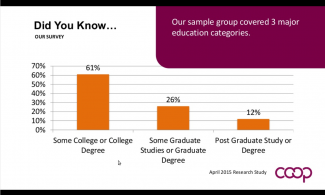
by Josh Davis
Something struck me as odd while I was looking through the slide presentation of the recent public opinon poll conducted by NCBA and Consumer Federation of America. The poll looked at knowledge of cooperatives and attitudes about them in the general population. One of the slides breaks down respondents to the survey by educational attainment level. Here it is:
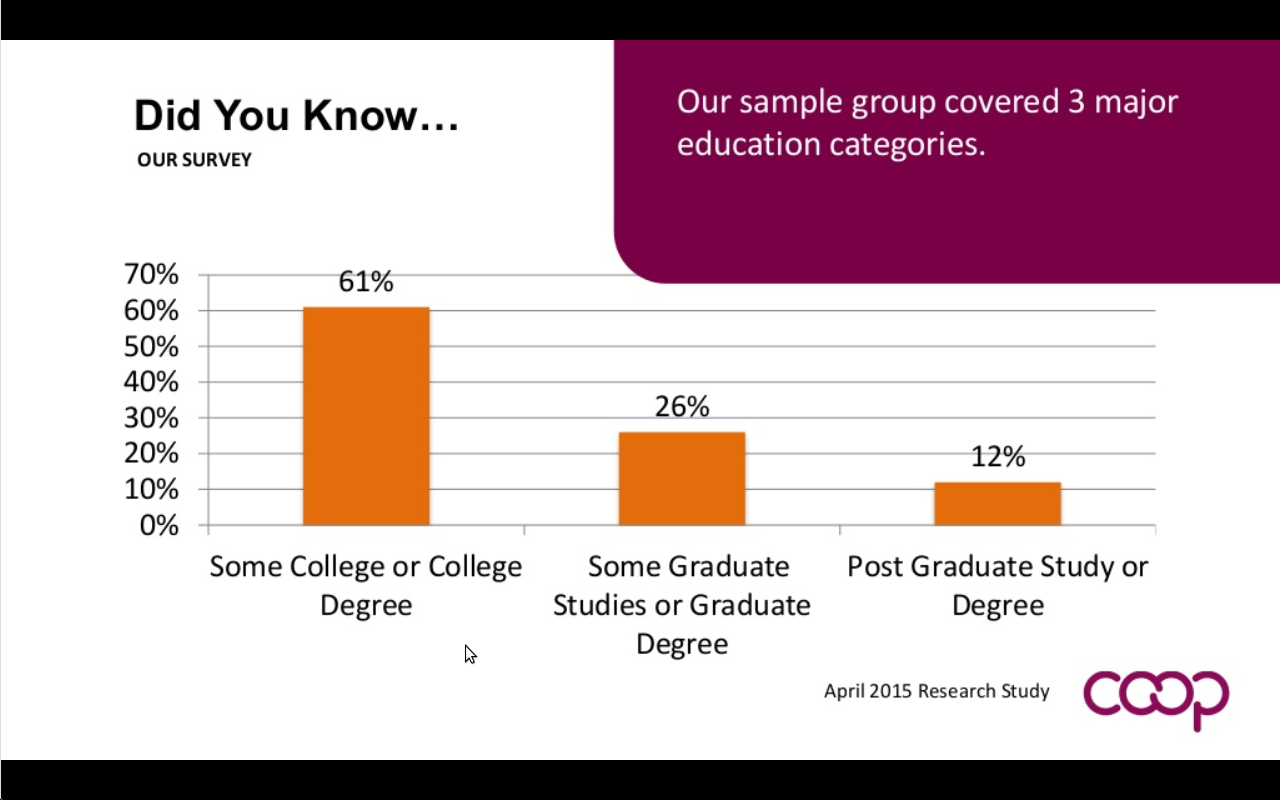
As you can see, there is no category for anything less than "some college." Adding the percentages of the three categories in the table gives 99%, so I assume that the remaining 1% is respondents who never attended college. Contrariwise, in the US as a whole, a little over 41% of the adult population has never gone to college, according to the Census Bureau. Additionally, only 11.8% of the population have pursued formal education beyond a bachelor's degree, while 38% of the respondents have.
So the educational demographics of the survey respondents don't match the demographics of our country as a whole...not even close.
The trend continues in the next slide, which shows the percentage of respondents by income level:
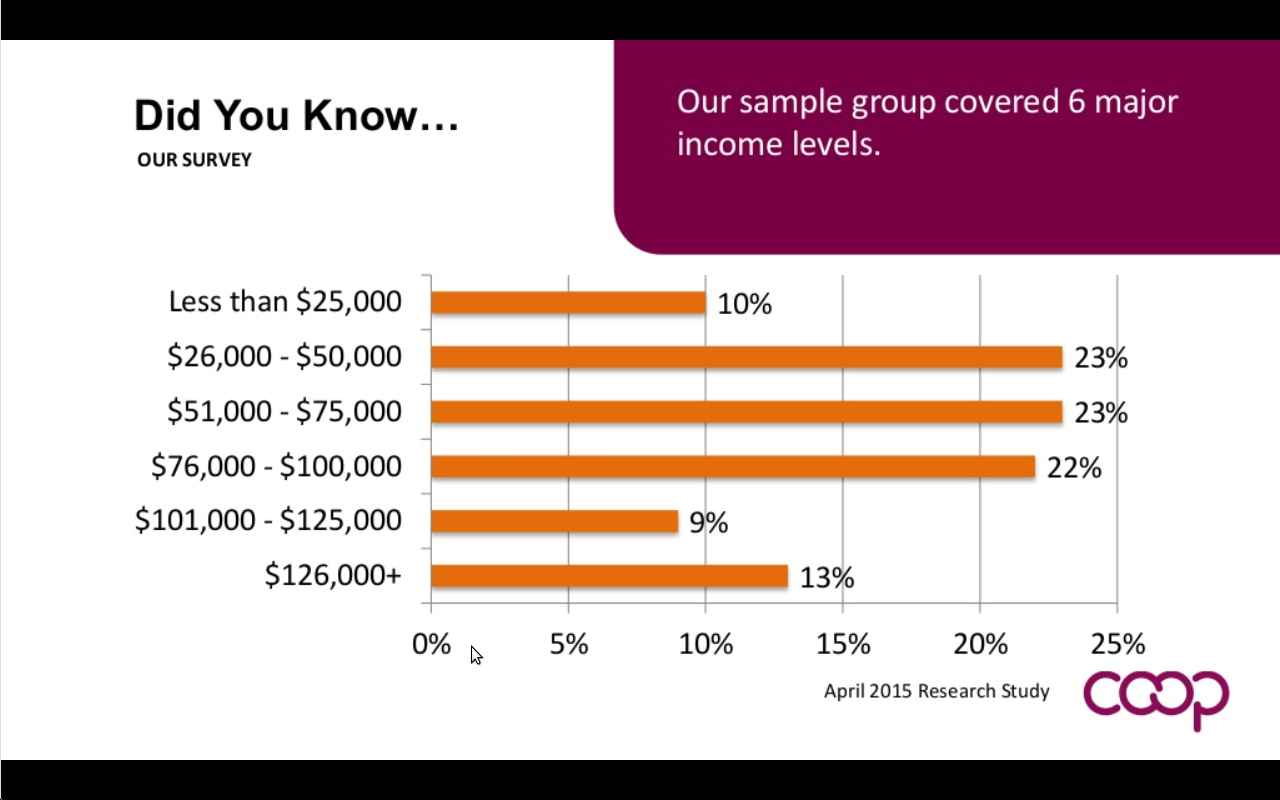
It is unclear from this slide whether these numbers represent household or personal income levels, and I can't find the report itself on the NCBA website to verify. However, even if the income levels reported are household incomes, the survey respondents skew much higher-income than the poplulation as a whole.
To give some idea as to why the above chart struck me as so anomolus, only 7.5% of individuals earn over $100,000 per year. 45% make less than $25,000 per year. Compare that to the survey respondents - 22% report earning over $100,000 and only 10% below $25,000.
Even if the incomes reported represent total household income, as opposed to individual incomes, the survey respondents still look considerably wealthier than the general population. As of 2013, only 52% of US households made $50,000 per year or more, while 67% of the survey respondents report at least that much income. And whereas 24% of American households make less than $25,000 per year, only 10% of the respondents fall into that category. Whether we're looking at personal or household income, then, the conclusion is the same - high income individuals are over-represented in the survey, while low income individuals are under-represented.
The obvious question is why this is the case. Why weren't more low-income, non-college educated people surveyed?
It is my belief that cooperative economics are more important, more necessary, for poor people like myself than for middle-class and well-to-do people. It is we poor people who most urgently need a new economy - who require alternatives to the existing system now.
Some within the cooperative movement spend a considerable amount of energy bringing co-ops to low-income communities and people. The ability of co-ops to increase wages and build wealth for the poor is one of the major selling points in getting co-op development funds from cities like New York and Madison. Seeing as how this is the case, it would seem that more of an effort would be made to get feedback from people in those communities.
I'll be interested in looking over the full report, whenever it is released - I'm happy that the movement is doing this sort of outreach and research. However, if we want to be truly inclusive, if we want to realize the potential of the cooperative movement to benefit people of all classes and backgrounds, we need our outreach and education efforts to extend to everyone. I hope the next time one of these surveys is done, the demographics look more like America where - like it or not - 40% of the population hasn't been to college and 45% make less than $25,000 per year.

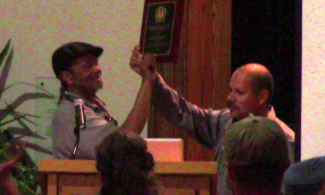
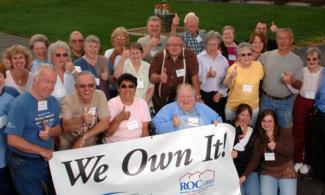
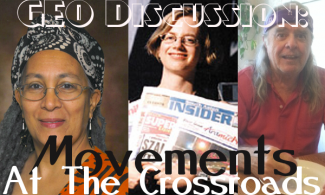
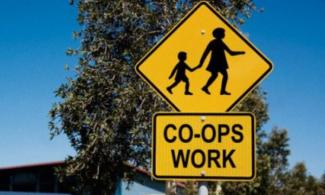
Add new comment